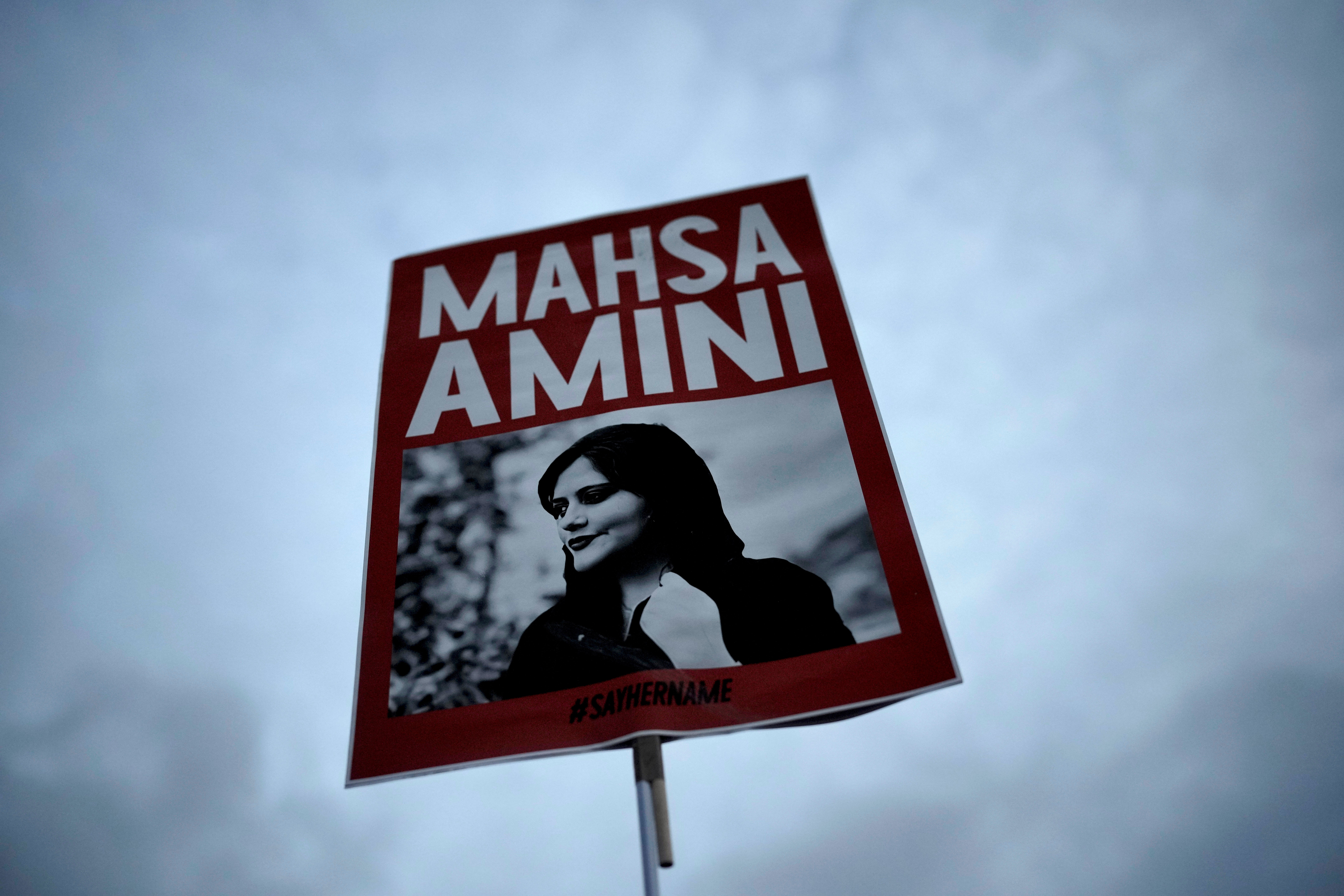Iranian woman whipped 74 times for not covering her head
Flogging of Roya Heshmati sparks outrage in Iran for ‘inhumane’ punishment
Your support helps us to tell the story
From reproductive rights to climate change to Big Tech, The Independent is on the ground when the story is developing. Whether it's investigating the financials of Elon Musk's pro-Trump PAC or producing our latest documentary, 'The A Word', which shines a light on the American women fighting for reproductive rights, we know how important it is to parse out the facts from the messaging.
At such a critical moment in US history, we need reporters on the ground. Your donation allows us to keep sending journalists to speak to both sides of the story.
The Independent is trusted by Americans across the entire political spectrum. And unlike many other quality news outlets, we choose not to lock Americans out of our reporting and analysis with paywalls. We believe quality journalism should be available to everyone, paid for by those who can afford it.
Your support makes all the difference.A woman in Iran was whipped 74 times by the police for “violating public morals” by sharing a picture in which her head was not covered.
The incident sparked outrage among many people, including activists and political commentators, who condemned the “inhumane” punishment.
In a statement on the official news website, Mizan, the judiciary said Roya Heshmati was sentenced and flogged for her alleged links to organise groups outside Iran to defy hijab rules and encourage others.
“The convicted, Roya Heshmati, encouraged permissiveness [by appearing] disgracefully in busy public places in Tehran,” it said late on Saturday.
“Her penalty of 74 strokes of the lash was carried out in accordance with the law and with sharia,” and “for violating public morals”, Mizan said.
Ms Heshmati, 23, a vocal critic of the country’s controversial hijab laws, was arrested in April from her home in Tehran for sharing her picture of her back dressed in a red shirt and a knee-length black skirt while walking in the street without a headcover.
Her punishment was carried out on Wednesday and she was held in custody for 11 days.
She was initially sentenced to 13 years in prison, fined 12m rials ($25) and 74 lashes. But her prison sentence was dropped by an appeals court, according to Iran International news.
Under Iranian law, which is based on Tehran’s interpretation of Sharia law, women and girls above puberty age must cover their head with a scarf and bodies with long, loose-fitting clothing.
The rules were made even stricter last year after Iran’s parliament passed a new “hijab and chastity” that would increase the prison sentence to 10 years and fine to between 180m and 360m rials ($3,651-$7,302 for dressing "inappropriately" in public places.
The law change came days after the anniversary of the death of Mahsa Amini, a 22-year-old woman who was detained by morality police for violating the country’s dress code. Her death in custody ignited months of protests prompting many to call for the overthrow of Iran’s theocracy.

The demonstrations sparked by Amini’s death on 16 September 2022 died down following a heavy crackdown on dissent in which more than 500 protesters were killed and over 22,000 detained.
In October, Iranian teenager Armita Geravand, 16, died in hospital after she fell into a coma after an alleged altercation with the country’s morality police on a Tehran metro train.

Describing her punishment, she said in an Instagram post, according to Iranian International, that a man hit her on the shoulders, back and legs with a weather whip in what appeared to be a small “medieval torture chamber”. She said she continued to whisper a song “Rise, for Woman, for Life, for Freedom” under her breath.
“[The lashing] was over. We left the room. I didn’t let them think I had experienced pain…We went up to the judge in charge of execution of the sentence,” she said.
“The female agent walked behind me and was careful not to let my headscarf drop from my head. I threw off my scarf at the courtroom entrance. The woman asked me to wear the headscarf. I didn’t stop and she pulled it over my head again," she wrote.
Kurdish-focused rights group Hengaw called it an “inhumane punishment”.
“Before the flogging, violence was used against Roya Heshmati because she consistently refused to wear a headscarf,” it said.
A prominent political commentator Abbas Abidi said “enough is enough” describing the punishment as disgusting.
“These lashes did not just come down on the body of one woman, they hit all those who dream of a life with normal freedoms alongside each other. Enough is enough. Don’t disgust the society any more than this,” Mr Abidi said.
Azar Mansoori a reformist politician said on X that one could not be a Muslim and stay silent about Ms Heshmati’s flogging for hijab.
“This insistence on showing the ugliest face of a religion whose main mission is to give dignity to human beings is surprising. Which religion are you Muslim?” she said.
Zahra Rahnavard, an author and an activist who has been under house arrest since 2011 with her husband said: “You who rule! You whip Roya Heshmati’s body but she, the one with an alert and resilient conscience, laughs bitterly at you. I abhor your manner of governance”.
Iran’s authorities have installed cameras in public places to identify women defying the country’s compulsory dress code. Police said cameras were installed in public places to penalise women not wearing veils.

Join our commenting forum
Join thought-provoking conversations, follow other Independent readers and see their replies
Comments